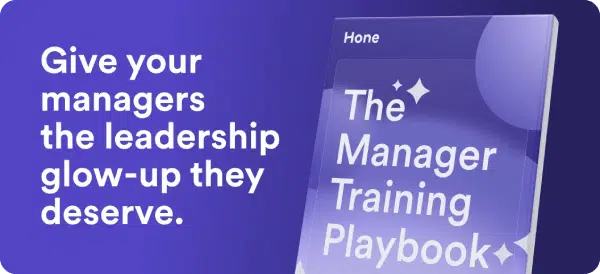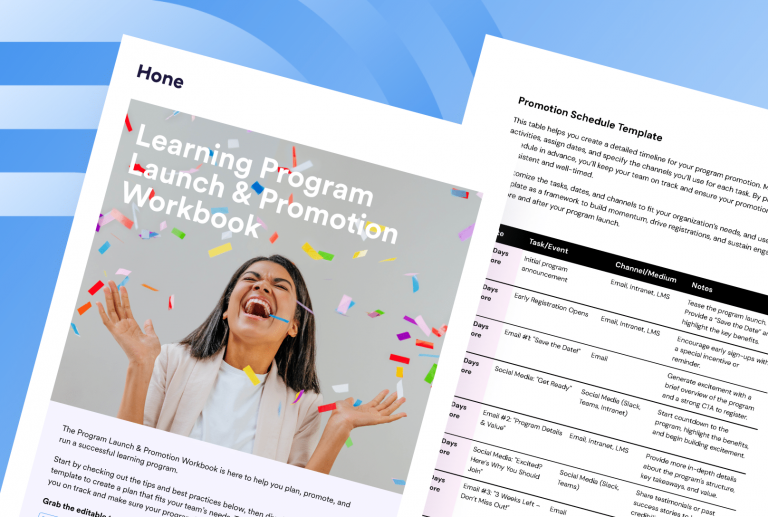What is a Focal Review Process?
A focal review process refers to a performance management process designed to provide employees with regular feedback on their job performance, identify their strengths and areas for improvement, and establish goals for their future development.
The process typically involves a meeting between the employee and their manager. The manager provides feedback on the employee’s performance, discusses their goals and objectives, and provides guidance on improving their performance. The review focuses on the key areas of the employee’s job performance, such as their job responsibilities, achievements, and areas for development.
Organizations often use the Focal Review Process as part of their overall performance management system, which is typically conducted annually or semi-annually. It is a valuable tool for employees and managers, as it helps improve communication, align goals, and promote employee development.
Performance Reviews vs. Focal Reviews
No matter which option organizations choose, team and employee assessments are crucial for business success. Both types of reviews:
- Can improve overall job performance
- Are a chance to recognize strengths
- Are opportunities to set goals
- Track progress
- Present clear areas of improvement
Employee performance reviews are individual assessments. They can take place at annual, semi-annual, or quarterly intervals. Annual reviews, such as year-end reviews, may co-occur each year.
Or managers may conduct anniversary performance reviews that correspond to specific dates, like each employee’s hire or promotion date. As a result, anniversary performance evaluations occur on different dates throughout the year instead of one time.
The focal review process is gaining popularity in many companies. The method has fewer interruptions than anniversary performance reviews. And it can take less time than year-end reviews.
Choosing the best system depends on various factors, including the organization’s size, hiring patterns, organizational structure, and more. However, there is no better method objectively, as companies have unique needs. And both have merits and deficiencies.
Advantages of Focal Performances vs. Advantages of Performance Reviews
The best process is only as good as the individuals conducting the assessments. If managers know how to give effective feedback equally, companies can review each type’s positive attributes. But organizational leaders must choose the option that works for their specific business.
Advantages of Focal Performance Reviews
For HR teams
- Preparation can streamline processes and reduce administration time
- Easier to coordinate completion when all departments prioritize reviews
- Provides access to overall workforce performance data for business planning
- Can implement organization-wide changes to criteria, processes, and relevant training simultaneously
- Synchronized evaluations offer context for a more equitable review process
- The overall cost savings are often substantial
For Managers
- Easier to plan and prioritize review cycles
- Concurrent evaluations provide greater visibility into relative performance.
- Logical alignment between follow-up goals at the company, team, and individual levels
For Employees
- It affects compensation adjustments less by changing business cycles
- Allows high-performers to stand out and be rewarded
- All employees are evaluated against the same circumstances
Advantages of Anniversary Performance Reviews
For HR teams
- Performance management is prioritized year-round
- Prevents backlog during performance review peak periods
- Does not require company-wide slowdown during review cycles
- Requires fewer resources to coordinate
For Managers
- You only need to evaluate one employee’s performance at a time
- Allows managers to dedicate more time to in-depth feedback
- Works well for assessing individual performance against formalized standards
For Employees
- Gives workers an equal amount of time to understand their roles and team dynamics
- Compensation and promotion decisions are in line with precise tenure
Disadvantages of Focal Performances vs. Disadvantages of Performance Reviews
Besides the below list of disadvantages, organizations must assess their personnel to determine the best practice. For instance, some managers need tips to lead effective one-on-one meetings. However, they may excel at group feedback and are better suited for focal reviews.
Disadvantages of Focal Performance Reviews
For HR teams
- Requires tight scheduling across multiple departments
- Coordinating synchronized review cycles may require a higher budget for the right tools
For Managers
- It can be tough on those who have many direct reports
- This may cause lower-quality feedback to individual employees
- Difficult for managers who struggle to prioritize performance reviews over other projects
For Employees
- Employees are implicitly compared to their peers and teammates rather than having their accomplishments viewed in isolation.
- It can be disadvantageous for employees who join shortly before or after the latest review cycle.
Disadvantages of Anniversary Performance Reviews
For HR teams
- Requires ongoing oversight of hiring calendars and changes to report structures
- Low on-time completion rates due to a lack of organizational push
- Harder to implement systematic changes to processes or criteria
- Performance data is gathered intermittently throughout the year rather than at one time
- Challenging to create an equitable system where all employees receive scores based on the same performance standard
For Managers
- It can disrupt operations, especially if timed with a significant project.
- More difficult to provide an equitable performance evaluation across team members
For Employees
- Compensation allocations can be unfair to employees whose reviews occur early or late in the fiscal year or during a slow quarter.
- Employees are evaluated against corporate goals at different stages of their completeness.
How Managers Continuously Measure Performance
Performance reviews can seem daunting and stressful if managers seldom provide constructive feedback. Instead of saving feedback for assessments, managers should give effective feedback throughout the year.
Continuous feedback can happen:
- Weekly through work tools (project management tools, sales tools, etc.) and 1:1s
- Quarterly via OKR-setting and review
- Annually or every six months with 360 reviews and other formal performance check-ins
However frequently they occur, all parties involved should dedicate separate time for job assessments. Likewise, they need to set a time for a follow-up plan. Follow-up is what gives the performance review process meaning.
Managers can also reduce anxiety and stress by setting expectations. Supervisors and employees feel more at ease when they know what to anticipate. This means having clear expectations of the meetings’ structure, such as:
- Checking-in
- Summarizing strengths
- Summarizing areas for improvement
- Overall rating and formal decisions
- Discussing the path forward
HR leaders that provide necessary performance review training can improve the process. Additionally, standardization streamlines assessments and can reduce stress, time, and resources spent.
How to Transition to a Focal Review Process and Away from an Anniversary Review
The transition from anniversary reviews to focal reviews can require months of preparation. Yet, organizations using an annual focal review process model tend to complete it quickly. Therefore, it’s often worth the effort and time investment.
The process should be carefully thought out. Communication between HR, Payroll, Finance, and other departments needs to be open. Open communication helps in decision-making and ensures that resources and costs are accurately calculated against the budget.
For instance, the transition team needs to decide whether they need to prorate salaries and bonuses with the change of review date. In addition, teams may continue individual employee evaluations temporarily in addition to the new focal review process as part of the transition.
Additionally, the timeline must fall in line with significant company calendar dates, such as:
- Organizational goal deadlines
- Budget reviews
- Tasks that cannot be put to one side
The transition team must communicate change effectively to emphasize its importance. Employees are less likely to resist the modification when they understand the reason.












